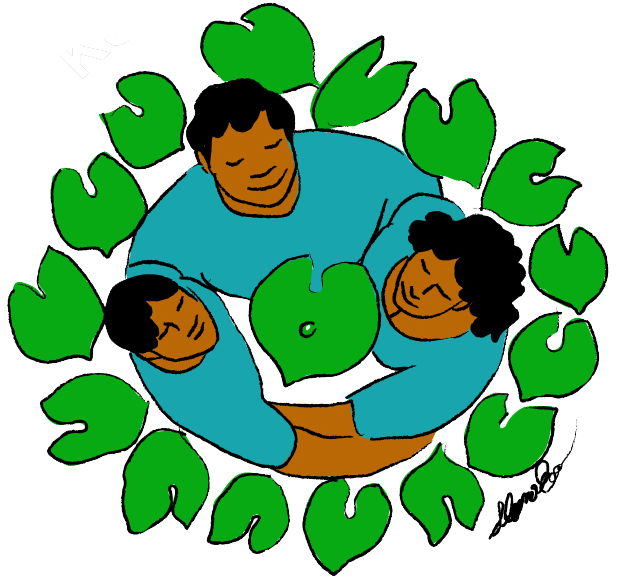Looking Back - Community Aides Report
One of KKV’s trusted early community aides seeing a keiki patient inside our clinic.
From the 1974-1975 KKV Annual Report
During the year 1974-75, the Community Aides Program continued its bilingual outreach efforts to the residents of Kalihi Valley with greater emphasis on specific problems despite funding problems.
In spite of the vacancy that existed in mid-December 1974 for a Samoan community aide, funds were nearly exhausted and it was necessary to lay-off another aide in January 1975. This left one full-time Ilocano speaking and part-time Korean-speaking community aide on staff along with two Vista-funded workers. Although our funding situation did not stabilize immediately, we were able to regain our full strength through the City & County of Honolulu’s CETA Program. We hired a Samoan dental assistant to work part time as a community aide and rehired the aide who had been laid off. We also hired an additional Ilocano speaking aid.
As a response to findings in the Health Center and repeated observations during home visits, there seemed to be an increased involvement in specific problem areas. There were several informative meetings with representatives from Alcoholics Anonymous; the assignment of staff from Lanakila Mental Health Clinic for a period of six months; six regularly scheduled meetings with a graduate student in Public Health Nutrition to jointly work on balanced diets which would include proper substitutions of ethnically desired foods; the assignment of a nutritionist from the UH Department of Foods and Nutritional Sciences currently working on a research study on Samoan diets and to assist with diet counseling; and regular meetings to plan and participate in a pilot survey of mental health needs of immigrant families sponsored by the UH Department of Psychology in conjunction with the Kalihi-Palama Mental Health Clinic in the fall of 1975.
At present further development of programs is contingent on funding. As in the past, we may continue in the role of the referring agency dependent on services available in the outer community. As far as staffing is concerned, we are faced with an increased payroll with the CETA Program ending at the end of this fiscal year, and see a further need for staffing to deal with the influx of Vietnamese refugees.
The original four community aides. Top left - Mrs. Florida Felipe; Top right - Myrna Cooper; Bottom left - Florence Mow; Bottom right: Frances Row.






